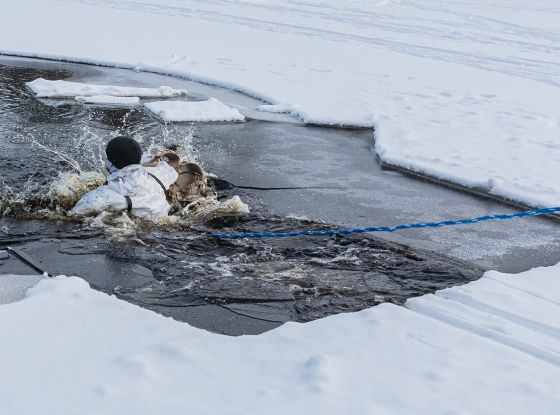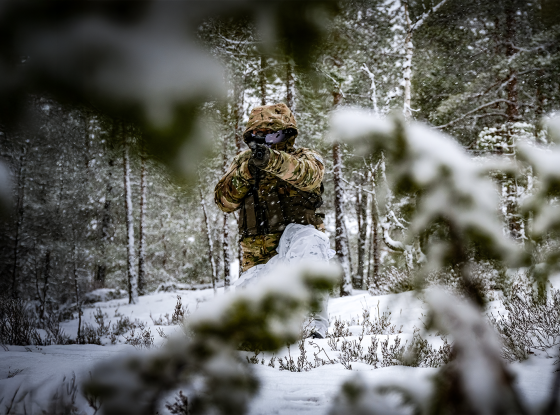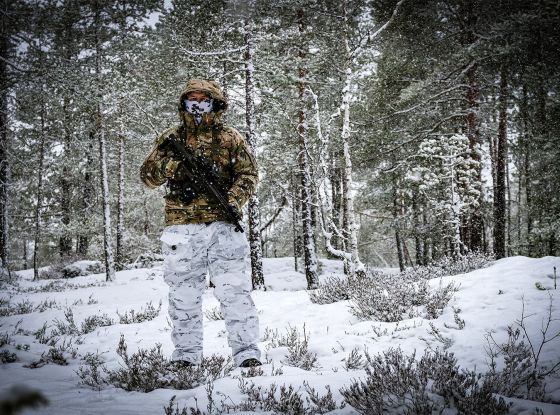The British Tommy, a symbol of courage and resilience, is an enduring image of the First World War. The soldiers of the British Army, known affectionately as "Tommies," fought bravely in the trenches of Europe between 1914 and 1918. The British WW1 uniform they wore not only represented their allegiance but also helped them survive some of the harshest battlefield conditions in history.
In this blog post:
- Introduction
- History of the British WW1 Uniform
- Components of the British WW1 Uniform
- Evolution of the British WW1 Uniform
- The Significance of the British WW1 Uniform
- Preserving the British WW1 Uniform for Future Generations
- The British WW1 Uniform and Historical Reenactments
- The British WW1 Uniform in Popular Culture
- The Influence of the British WW1 Uniform on Modern Military Apparel
- Conclusion
Introduction
This blog examines the history, design, and evolution of the iconic British WW1 uniform. It also offers a look at the garment’s components and considers the crucial role the uniform played in the lives of British Tommies.
History of the British WW1 Uniform
The British Army's uniform evolved significantly during the First World War. Before this “War to End All Wars,” British soldiers wore bright red tunics and white trousers. At the onset of the conflict, those brightly colourful garments were superseded by khaki tops and bottoms, which enabled wearers to blend in with the battlefield (thus making it more difficult for enemy gunners at a distance to spot and target them). This more practical design marked a significant shift in military thinking about uniforms—a shift prompted by the evolution of warfare which, in the early 20th Century, made concealment and soldier protection top priorities.
![]()
Image source: www.historic-uk.com
Components of the British WW1 Uniform
The British WW1 uniform was designed with functionality and durability in mind. Each of its components served a specific purpose. Here they are in review:
- Service Dress Jacket. Made from khaki wool, the Service Dress Jacket was the primary garment worn by British soldiers during WW1. It featured a stand-up collar, brass buttons, and four large pockets for carrying essential items. The jacket's loose fit allowed for easy movement and provided limited protection from the elements.
- Service Dress Trousers. Like the jacket, the trousers were made from khaki wool and designed for comfort and durability. They featured a button fly, belt loops, and braces to ensure a secure fit.
- Puttees. These were long strips of khaki wool that were wrapped tightly around the lower leg, from the ankle to the knee. Puttees provided extra support and protection for the soldiers' legs, as well as helping to prevent trench foot—an affliction common among troops deployed in muddy trenches (of which there were 35,000 miles worth).
- Brodie Helmet. Introduced in 1915, the Brodie Helmet became the most readily recognisable symbol of the British Tommy. Made from steel and featuring a wide brim, it provided crucial protection from shrapnel and other battlefield hazards.
- Webbing Equipment. A complex system of belts, straps, and pouches was employed to let frontline soldiers carry into battle their essential kit (consisting in part of ammunition, food, and water).
![]()
Image source: www.bbc.co.uk
Evolution of the British WW1 Uniform
As the war progressed, the British WW1 uniform underwent several changes to meet the demands of the battlefield. One significant development was the introduction of the steel Brodie Helmet (mentioned above), which replaced the soft peaked caps initially worn by British soldiers. The new helmet offered better protection against shrapnel and other dangers encountered in the trenches.
Another notable change was the adoption of the "Battledress" uniform, designed for greater comfort and practicality than the traditional service dress could supply. This new uniform featured a shorter jacket with a more streamlined fit, and trousers that were cut more generously to allow for greater ease of movement.
![]()
Image source: www.historicalfirearms.info
The Significance of the British WW1 Uniform
The British WW1 uniform played a vital role in the lives of the British Tommies, both practically and symbolically. The uniform's practical design and sturdy construction ensured that soldiers were well-protected and equipped to face the miserable conditions routinely encountered in the trenches. At the same time, the uniform represented a powerful symbol of unity and national identity, helping to foster a sense of camaraderie and shared purpose among the troops.
Today as we look back at the British WW1 uniform, it remains an iconic symbol of the courage and sacrifice of the British Tommies who fought and died during the Great War. Museums, historical re-enactments, and films continue to preserve and celebrate the legacy of the British WW1 uniform, ensuring that the stories of these brave soldiers are never forgotten.
![]()
Image source: www.dailymail.co.uk
Preserving the British WW1 Uniform for Future Generations
Efforts to preserve and display the British WW1 uniform are an essential part of honouring the memory of the British Tommies who fought in the Great War. Museums and private collectors alike work tirelessly to maintain and exhibit these historic artifacts, ensuring that future generations can appreciate the significance of the British WW1 uniform and the stories of those who wore them.
![]()
Image source: www.nam.ac.uk
The British WW1 Uniform and Historical Reenactments
Interest in the British WW1 uniform remains strong among military history enthusiasts and reenactors, who meticulously recreate the uniforms and equipment of the British Tommies. Through their efforts to educate others about the experiences of the British soldiers who fought in the conflict, these professional and amateur historians are helping ensure that the First World War does not fade from society’s collective memory.
The British WW1 Uniform in Popular Culture
The British WW1 uniform has also played a prominent role in popular culture, making appearances in countless films, television series, and novels that portray the experiences of the British Tommies during the Great War. These portrayals not only help educate the public about the history of the war but also serve as an immersive tribute to the bravery and sacrifice of the British soldiers who fought in the conflict.
![]()
Image source: 1918 First National Pictures
The Influence of the British WW1 Uniform on Modern Military Apparel
The British WW1 uniform made a strong and lasting impression on those who design and manufacture military apparel. That influence can be seen in the design of British military uniforms that came later and in the design of uniforms belonging to other nations. The most-copied aspect of the British WW1 uniform was its practical design and durable construction. Modern combat helmets around the world, for example, can trace their configurations and functionalities back to those that began with the introduction of the Brodie Helmet. Likewise, modern military and tactical clothing owe many of their now-standard design forms and features to the principles that lay at the heart of the British WW1 uniform.
![]()
Image source: United States Library of Congress's Prints and Photographs division
Conclusion
The British WW1 uniform stands as an enduring symbol of the courage, sacrifice, and resilience of the British Tommy during one of history's most devastating conflicts. By examining the history, design, and evolution of this iconic uniform, we can better understand the experiences of the British soldiers who fought in the First World War and appreciate the lasting impact of their service. Whether through historical reenactments, museum displays, or modern military apparel inspired by the uniform's practical design, the legacy of the British WW1 uniform continues to be preserved and celebrated for future generations to remember and honour.



